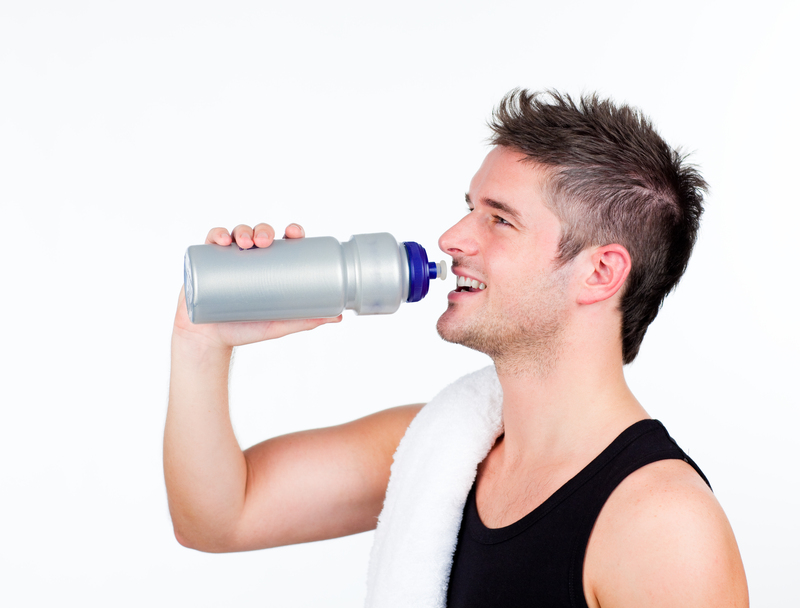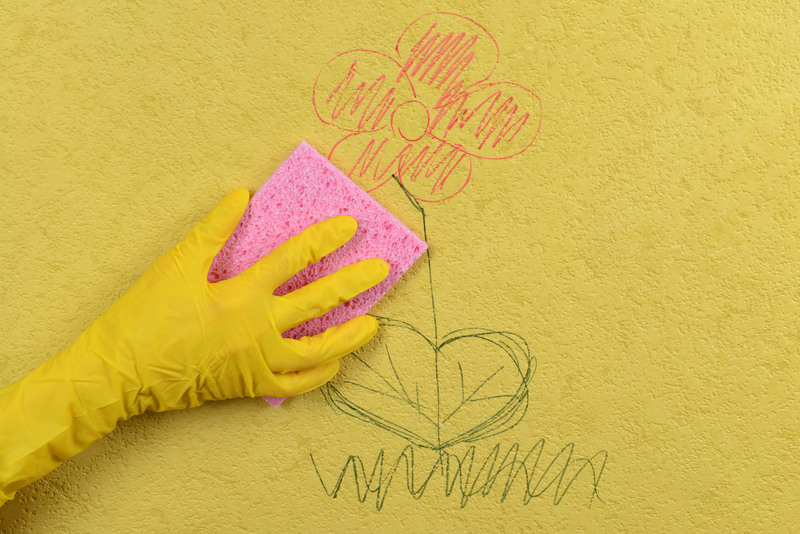Home Carpet and Hard Flooring Cleaning for Healthier Living
Posted on 17/08/2025
Home Carpet and Hard Flooring Cleaning for Healthier Living
In today's health-conscious world, maintaining a clean home environment is more important than ever. Key areas often overlooked are our floors--both carpets and hard surfaces. This comprehensive guide will delve into the essential topic of home carpet and hard flooring cleaning for healthier living. We'll explore why regular maintenance is critical, compare cleaning methods, provide expert tips, and explain how a clean floor can directly benefit your family's health.

Why is Carpet and Hard Floor Cleaning Essential for Health?
Do you realize how much dirt, dust, bacteria, and allergens your floors harbor? Carpets notoriously trap pollen, pet dander, and micro-dust mites, while hard flooring accumulates grime, mold spores, and potentially harmful germs.
- Improved Air Quality: Keeping your carpets and hard floors clean reduces airborne particles, supporting better respiratory health and comfort for allergy sufferers.
- Reduced Allergens: Frequent professional or deep cleaning removes allergens, bacteria, and potential toxins, helping prevent allergic reactions and asthma attacks.
- Mold Prevention: Proper floor cleaning keeps moisture and mold at bay--an especially important concern for homes with higher humidity or pet traffic.
- Enhanced Well-being: An organized and clean living space contributes to emotional well-being, reducing stress and promoting relaxation.
Carpet Cleaning: Strategies for Healthier Living
Main Benefits of Regular Carpet Cleaning
- Elimination of Dust Mites: Regular vacuuming and steam cleaning kill and remove dust mites, common triggers of allergies.
- Prolonged Carpet Life: Deep cleaning removes soil that can wear down fibers, ensuring your carpet looks fresh and lasts longer.
- Odor Removal: Carpets can trap odors from pets, spills, and daily activity. Routine cleaning eliminates these smells, leaving your home refreshed.
Choosing the Best Carpet Cleaning Methods
There are several methods for maintaining and restoring your carpets. Here are the most effective techniques and their health benefits:
- Vacuuming: The foundation of any carpet care regime. For best results, use a HEPA filter vacuum at least twice a week, especially in high-traffic areas.
- Steam Cleaning (Hot Water Extraction): This process uses hot water and cleaning solutions to penetrate carpet fibers, loosening and extracting deep-seated dirt, bacteria, and allergens.
- Dry Cleaning: Ideal for delicate carpets, this method uses low-moisture compounds and specialized machines to absorb and lift dirt.
- Spot Cleaning: Tackling stains promptly with eco-friendly, non-toxic products prevents long-term damage and the growth of bacteria or mold.
Tip: Always check the manufacturer's instructions before using a new cleaning method or product on your carpet.
Recommended Carpet Cleaning Schedule
- High Traffic Areas: Vacuum 2-3 times a week; deep clean every 3-6 months.
- Bedrooms, Living Rooms: Vacuum once a week; steam clean at least twice a year.
- Pet or Child-Friendly Homes: Consider professional cleaning quarterly to remove allergens, dirt, and pet hair.
Hard Flooring Cleaning: Optimizing for a Healthier Home
Hard floors, including wood, tile, laminate, and vinyl, do not retain dust in the same way as carpet but require diligent maintenance to avoid spreading germs or grime.
Types of Hard Flooring and Their Cleaning Needs
- Hardwood: Regular sweeping or vacuuming, with periodic damp mopping using non-abrasive cleaners. Avoid excessive water, which can warp boards and promote mold.
- Tile and Grout: Sweep or vacuum untreated debris, then use a pH-neutral cleaner. Pay attention to grout lines, where bacteria and mildew accumulate.
- Laminate: Keep dry as much as possible, mop with slightly damp microfiber mop, and avoid harsh chemicals to preserve surface integrity.
- Vinyl: Sweep daily and occasionally mop with a mild detergent. Resist abrasive tools that can scratch the finish.
How Does Floor Cleaning Prevent Illness?
- Bacterial Control: Hard floors can harbor dangerous bacteria and viruses if not regularly disinfected, especially in kitchens and bathrooms.
- Slip & Trip Prevention: Clean floors reduce environmental hazards, minimizing the risk of slips or falls--especially for children and the elderly.
- Mold Management: Frequent removal of dust and spills curtails mold spores and prevents spread to other parts of your home.
Effective Home Floor Cleaning Techniques
Daily Cleaning Habits
- Remove Shoes: Ensure everyone removes their shoes before entering to prevent tracking dirt and outside contaminants indoors.
- Spot Clean Spills Immediately: Use a damp microfiber cloth for both carpet and hard flooring. Immediate action stops staining and discourages bacterial growth.
- Keep Entryways Clean: Place mats at doors and vacuum or sweep them regularly--it's the first line of defense in home cleanliness.
Weekly Routine Cleaning
- Vacuum or Sweep Floors: Use vacuum attachments for edges and corners, and a broom or dust mop for hard floors.
- Mop Hard Floors: Use the manufacturer-recommended cleaner and avoid over-wetting.
- Address Stains: Blot (don't rub) carpet stains with a mild, non-toxic solution and clean hard floor spills using the appropriate products for your surface type.
Monthly and Seasonal Deep Cleaning
- Carpets: Rent or hire professional carpet cleaning services or use a home steam cleaner to lift embedded dirt, dust mites, and allergens.
- Hard Floors: Deep clean with a specialty cleaner to remove soil buildup, especially in kitchens, bathrooms, and entryways. Pay attention to grout and edges.
- Furniture & Area Rugs: Move them to clean underneath and consider professional rug cleaning yearly.
Eco-Friendly and Non-Toxic Cleaning Solutions
For healthier living, opt for green cleaning products and natural solutions to keep carpets and hard flooring clean. Many store-bought products contain harsh chemicals or VOCs (volatile organic compounds) that could affect indoor air quality and health.
- Baking Soda & Vinegar: Lightly sprinkle baking soda on carpets, let it sit, and then vacuum. For hard floors, mix vinegar and water for mopping (avoid using on marble, stone, or hardwood).
- Castile Soap: A mild, plant-based option perfect for mopping hard floors.
- Essential Oils: Add a few drops to water or a DIY spray bottle cleaner for natural fragrance and antibacterial properties (e.g., tea tree, lavender, or lemon).
Tip: Always do a small patch test before using any new cleaner on your flooring or carpet to avoid discoloration or damage.
The Importance of Professional Floor Cleaning Services
Regular at-home maintenance is crucial for daily health, but professional floor cleaning delivers a deeper clean. Professional carpet cleaning and hard floor treatments use powerful equipment and specialized solutions that remove deeper pathogens, allergens, and grime that typical household equipment can't always reach.
- Expertise: Professionals are trained in different surfaces, ensuring optimal results without causing harm.
- Equipment: Industrial-grade tools agitate, extract, and sanitize more effectively than at-home methods.
- Allergen Removal: Thorough deep cleaning removes allergens missed by vacuums or DIY tools.
- Time Savings: Save time and effort for more enjoyable pursuits while ensuring your home stays hygienically clean.
When to Call a Professional?
- Annual deep cleaning of all carpets and rugs.
- After water damage or major spills to prevent mold and bacteria growth.
- If you notice persistent allergies, odors, or visible soiling despite routine cleaning.
Improving Indoor Air Quality Through Clean Flooring
Did you know that up to 80% of indoor dust and allergens originate from the floors? Clean carpets and hard floors reduce the total circulating dust, pet dander, pollen, and even invisible irritants such as volatile organic compounds. This directly benefits those suffering from asthma, seasonal allergies, or skin conditions.
- HEPA Vacuum Filters: Use HEPA filter vacuums to trap ultra-fine dirt, dust, and allergens that typical vacuums can't capture.
- Monitor Humidity: Excessive moisture encourages mold and mildew. Use dehumidifiers where necessary to maintain safe levels, especially in basements and bathrooms.
- Ventilate: Open windows when cleaning or using products to allow fresh air exchange and reduce buildup of any cleaning solution residues.

Preventive Measures for Cleaner Floors
Adopting proactive habits can dramatically reduce the amount of cleaning required and preserve the healthier living environment your family deserves:
- Entryway Mats: Place sturdy mats both outside and inside doors to absorb dirt, moisture, and debris.
- No Shoes Indoors: Make your home a shoe-free zone to stop outdoor contaminants at the door.
- Regular Grooming of Pets: Brush pets frequently to control shedding and dander spread on floors and carpets.
- Humidity Control: Prevent mold and warping by keeping indoor humidity between 30-50%.
- Declutter: Minimize clutter to reduce dust accumulation and simplify floor cleaning routines.
Final Thoughts: Making Your Floors Work for You
By prioritizing home carpet and hard flooring cleaning as part of your regular household routine, you not only maintain a visually appealing space but also lay the foundation for a healthier home. Clean flooring supports cleaner air, reduces allergies, and protects your family from harmful germs and toxins.
Whether you prefer green DIY solutions or professional cleaning, remember that routine care of carpets and hard floors pays off in longevity, home value, comfort, and overall health. Make floor care a top priority and watch as your living environment transforms into a safer, healthier haven for you and your loved ones.
Summary Checklist for Healthy Floor Care
- Vacuum weekly and after high-traffic events.
- Mop hard floors with a suitable, non-toxic cleaner.
- Address spills and stains immediately.
- Deep-clean carpets and hard floors seasonally (or more for homes with pets/kids).
- Regularly inspect for signs of mold, damage, or excessive wear.
- Consider professional cleaning for deep sanitation yearly.
For truly healthier living, start from the ground up. Clean floors build a cleaner, safer, and happier home environment for everyone.




